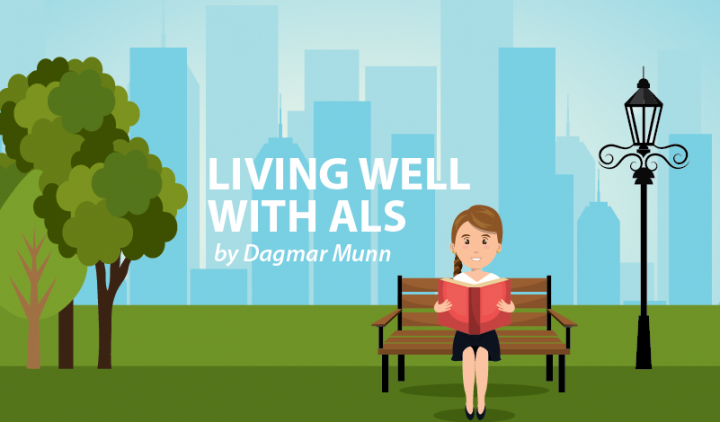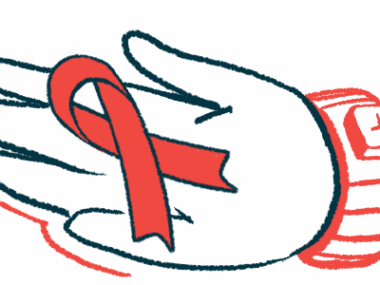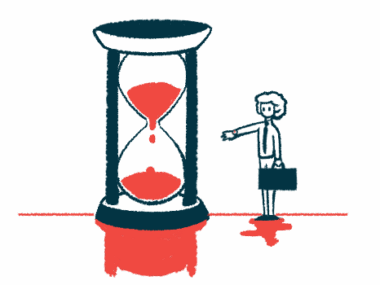Being ALS Support Group Savvy
Written by |

In last week’s column, I shared how the simple strategy of showing up helps me live with ALS. This week, I have a suggestion for something that should be at the top of your list of things to show up for: your ALS support group.
ALS support groups provide many benefits for patients and caregivers alike. The group is a safe and confidential space to share problems, issues, useful ideas, and even humorous moments. And they are educational: Many support groups have guest speakers from time to time sharing new developments in ALS-specific areas or related fields. By building camaraderie among members, support groups can also help dissipate the feelings of isolation that often arise from living with a rare disease such as ALS. The ALS Association sponsors meetings in almost every state, and even if you can’t travel to a support group, online access is often available.
As a former wellness director, one of my job duties was to speak to the many support groups in our community. It was a duty I found both enjoyable and personally rewarding. I don’t know how many individual groups held meetings in our town of 300,000, but I averaged over 100 speaking engagements per year! And I’m proud to say that quite a few were invitations to come back to the same group over and over. They liked what I said and wanted to hear more.
One group that stands out in my memory was called the Sleep Disorders Support Group. Their leader was a real dynamo who gave the impression that this was the most important part of her day. In the minutes before the meeting began, I noticed the regulars actively welcoming new members and guests. There were no awkward moments or lack of discussion. Everything was organized and followed a scheduled plan. And something everyone appreciated was that they started on time and ended on time. The leader had all her topics and speakers booked for the year ahead, and in addition to receiving genuine support from the other attendees, members could always count on learning something new and helpful. They asked me back several times for my presentations, which included “One-Minute Tai Chi,” “Chair Yoga,” and “Aromatherapy Basics.”
Upon my 2010 ALS diagnosis, I thought my speaking days were over. But thanks to my personal blog, “ALS and Wellness,” and the added exposure from writing for ALS News Today, I find myself once again giving presentations. In the past two years, I’ve been to Wisconsin, Minnesota, North Dakota and South Dakota, and most recently, Massachusetts. All with zero travel expense because they Skyped me in! The skillful use of technology by the ALS Association Chapter Coordinators in each of those states brought us together for my talks on “Mindfulness for ALS” and “How to Live a Balanced Life While Living with ALS.”
But technology can also get in the way. Support group leaders today have to fight competition on the internet and YouTube, where information is accessible any time of the day. I can imagine the challenge to keep the group interesting and meaningful is ever-present. If the topic looks ho-hum, members might think, “Why bother?”
Not every meeting needs to mirror a chatty daytime talk show, nor do speakers need to be TED Talk-worthy. But I encourage group leaders to go beyond the revolving door topics of hospice, wheelchairs, and living wills. Here are a few of my suggestions to add fun to the mix:
- Self-defense and safety tips for wheelchair users.
- Tips for creating healthy, tasty blended food.
- Low-cost ways to make home bathrooms more accessible.
- A discussion of local entertainment venues accessible for the handicapped.
- Boogie boards to spoons; adaptive devices and aides.
And don’t forget that if a potential speaker or topic is not available in your area, Skype can help bring them right into the room!
What topics can you add to my list? What were popular presentations at your support group? If you haven’t even attended a group yet, show up! You will be welcomed, feel empowered, and make new friends. Together we can learn from each other and together we can live well while living with ALS.
***
Note: ALS News Today is strictly a news and information website about the disease. It does not provide medical advice, diagnosis, or treatment. This content is not intended to be a substitute for professional medical advice, diagnosis, or treatment. Always seek the advice of your physician or other qualified health provider with any questions you may have regarding a medical condition. Never disregard professional medical advice or delay in seeking it because of something you have read on this website. The opinions expressed in this column are not those of ALS News Today or its parent company, Bionews Services, and are intended to spark discussion about issues pertaining to ALS.







Dr. D. N. Yadav
I am regular reader of ALS News today. I find it useful and interesting. I am diagnosed of MND in Feb 2017 at the age of 54 and living with it. I am scientist by profession. My academic and personal life is badly affected due to this illness. I am bothered by its progressive nature. I have imbalance problem in walking and weakness in body. I get frequent falls and find difficulty in dressing up and writing. I have hope that some medical intervention like stem cell therapy may solve this problem with regulatory approval.
renee
I enjoy reading your column. You write so well and you are very informative. I am so glad that you are able to skype your meetings. I am still working full-time and now I am considering going for the drug radicava. I am working through Johns Hopkins Hospital to get approved and hopefully have most of it paid for through my health insurance. Can anyone give me some advice before I go through this process. I have heard different stories and some patients have become upset and withdrawn from the treatment. Is this the correct forum to ask this advice. I am reaching out to everyone, and my friends and family think I should pursue this treatment rather than a clinical trial. I guess I am needing some help in which direction that I should go. Thank you so much for your great newsletters. So inspirational to me!
Dagmar Munn
Renee - - Thank you for your kind comments! Here are some ideas to help you in your decision: Ask at your neurologist's office if there are other patients also on radicava whom you could contact to ask how the process went and what their experiences taking it are. For a larger group to query (although not as vetted as your doctor's patients) you could join a few of the larger ALS-focused Facebook groups - - and ask there. "ALS Patient and Caregiver Tips" and "ALS Forum for Women (Lou Gehrig's Disease)" are two that have a large following and whose members are very responsive answering posted questions.
D N Yadav
Actually, I have been administered Radicava (Edaravone) for 10 months but I find myself more unstable i.e. my gait gets further disturbed. I have to report it to my neurologist. Generally, neurologist has no other solution. I am in difficult situation to live. Apart from Edaravone injection I am taking Rilozole tab regularly but no immprovement in my condition. Thanks to all for listening me.
Regards,
renee
Thank you for comment on radicava. I am doing a lot of investigation on this drug. I also take Rilozole. I feel pretty good and still work full-time, but I use a walker at work. My leg muscles are weakening, and I thought radicava would be a good treatment.
I am praying for you to feel better and more strength in your body. We are in this together. I just have trouble understanding this new drug. How much improvement will occur, and how will I pay $150,000 for it.
Lisa Bruening
Wondering if you are still available as a support group guest speaker? (via virtual link, of course)
Dagmar Munn
Hello Lisa - - Thank you for asking - - I will send you an email :-)
Nicole
Hello, I run an ALS support group with the ALS Association in the baltimore area. Do you still do speak at support groups? We have been having support groups once a month virtually since the pandemic.
Dagmar Munn
Hello Nicole, Thank you for asking :-) But now, due to my voice issues, I really can't commit to doing any presentations. I invite you to check out the topics on my blog: ALS and Wellness https://alsandwellness.blogspot.com/2017/09/als-and-wellness-blog-archives.html and perhaps one (or more) could be a good topic for your ALS support group to discuss.